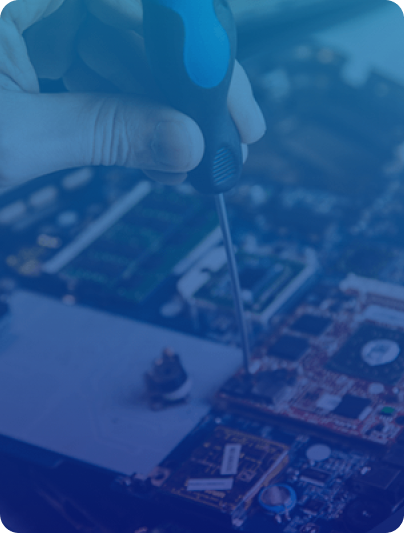Engineering Excellence for Business Growth
Amantya is your trusted partner for end-to-end product engineering solutions, offering cost-effective, cutting-edge services throughout the product lifecycle. From conceptualization to design, manufacturing, testing, launch, and post-market support, we deliver excellence backed by deep technical expertise, ready-to-use solutions, robust methodologies, and a strong partner ecosystem.
Embedded & Hardware Engineering Services
Amantya delivers full-spectrum embedded and hardware design services — from concept and development to integration and intelligent IoT solutions.
Hardware Design & Development
- Industrial & mechanical design: concept, detailing, prototyping
- Hardware & electrical design: schematics, PCB, and layout
- Design validation & compliance testing
- Rapid prototyping and accelerated mass production
Embedded System Software
- Firmware, BSP, and driver development
- OS expertise: Linux, Yocto, FreeRTOS, ROS, Android
- ML & Edge AI integration using NVIDIA, Renesas, MediaTek
- Network & sensor integration: MQTT, CoAP, LoRa, BLE, Wi-Fi, 3G/4G/5G
Backend & IoT Application Development
- IoT backend systems and API development
- Cloud-to-cloud connectivity and data orchestration
- Custom dashboards and mobile apps for users & technicians
- Analytics, automation, and business logic for alerts and insights
Ready to take your product from concept to market?
Talk to Our TeamOur Product Engineering Expertise
Amantya delivers end-to-end hardware design services, covering every stage—from schematics and prototyping to testing, mass production, and post-production support.
Why Amantya?

At Amantya, we provide end-to-end solutions that accelerate your product development journey with precision and expertise.
-
 Full-cycle partnership covering product discovery, design, development, hardware manufacturing, validation, and installation support.
Full-cycle partnership covering product discovery, design, development, hardware manufacturing, validation, and installation support.
-
 Expertise in hardware engineering, embedded software development, and interface design to handle projects of any complexity.
Expertise in hardware engineering, embedded software development, and interface design to handle projects of any complexity.
-
 Experienced team of hardware engineering experts offering scalable solutions across industries.
Experienced team of hardware engineering experts offering scalable solutions across industries.
-
 Agile methodology for optimized product development, improving existing systems, and revamping legacy ones.
Agile methodology for optimized product development, improving existing systems, and revamping legacy ones.
Use Cases
Our engineering expertise drives innovative solutions across industries, from concept to prototyping, firmware updates, and hardware development.

- Full-cycle support for conceptualizing, designing, and prototyping custom firmware.
- Automation of production lines to achieve large-scale manufacturing targets.
- Real-time monitoring of assets and equipment for operational efficiency.
- Development of HMI for efficient machine operation, control, and management.
- Agile methodology for cost-effective, sustainable solutions and optimized performance.
- End-to-end support for designing and manufacturing health monitoring devices and ingestible sensors.
- Seamless integration for better patient management and engagement.
- Real-time monitoring for improved healthcare delivery.
- Custom software stacks for efficient data sharing and medical applications.
- Agile approach for innovative, cost-effective healthcare solutions.
- Design and develop cutting-edge connected electronics solutions, including remote device management systems, fitness trackers, and smart wearables.
- Develop connected web and mobile applications with OTA support for firmware upgrades.
- Seamless integration of wireless connectivity for smart home and entertainment devices.
- Expertise in developing intuitive user interfaces for enhanced consumer experience.
- End-to-end support from design to deployment for optimized performance and reliability.
- Streamline supply chain and logistics operations with advanced hardware solutions.
- Enhance driver safety, security, and vehicle quality.
- Enable predictive vehicle maintenance for reduced downtime and improved efficiency.
- Provide end-to-end hardware design and engineering support tailored for the transportation industry.
- Drive adoption of embedded systems, sensors, and wireless technologies to meet business goals.
- Design new systems and re-engineer legacy solutions for evolving objectives.
- Deliver robust firmware and standardized software frameworks with MISRA C and AUTOSAR compliance.
- Conduct comprehensive analysis, including stack, object code, and structural code coverage.